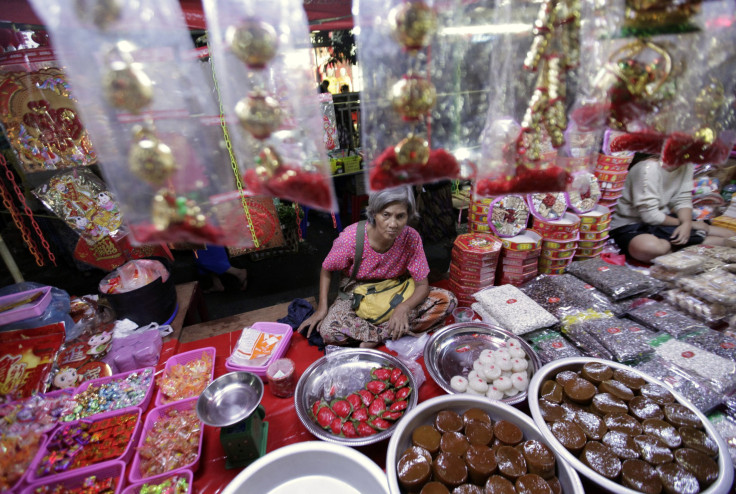Chinese New Year 2016: 8 food items to serve for good luck and fortune

The Year of the Fire Monkey is fast approaching, and preparations for the Chinese New Year are already in full swing. In addition to time-honoured traditions, colourful festivals and superstitious beliefs, this holiday is also an opportunity to serve and eat authentic Chinese food.
The dishes served and eaten during Chinese New Year, which will be celebrated on February 8, are meant not only to be enjoyed but to usher in good luck for the upcoming year. Below are eight of good luck food items that the Chinese say should be on the family dining table before midnight strikes.
1. Fish
Fish is an auspicious Chinese New Year symbol, associated with wishing for abundance in the coming year. The most common types of fish cooked for this special occasion include carp and catfish, which in Chinese sounds like “year surplus.” The fish can be served in various ways, whether it be steamed, braised or boiled. The method of cooking fish does not matter, as long as it is served whole with the head and fish attached.
There are also some rules related to positioning the fish on the table. For example, the fish’s head should be pointed towards the elders to represent respect, according to China Highlights. Diners cannot also have their share of the fish until the one who faces the fish head eats first.
2. Noodles
Noodles are popularly known to be a staple Chinese food, as well as a common food item in Japan and other Asian countries. For Chinese New Year, specifically, long and uncut noodles should be served to symbolise longevity, according to Mother Nature Network. Those who will cook noodles should be careful not to break or shorten them while preparing them. Stir-fry is the most popular type of serving the noodles during the auspicious event.
3. Green, leafy vegetables
Health experts have long touted the benefits of consuming vegetables. The Chinese also adhere to this belief, as they consider dishes with green and leafy vegetables to be prosperous. Leafy vegetables, such as Chinese broccoli, should be served in whole to symbolise a long life for parents, according to Rosemary Gong’s “Good Luck Life” as quoted by Chowhound.
4. Rice
Known to symbolise fertility and prosperity, rice is considered to be a good luck food by the Chinese. The “nian gao” or glutinous rice is especially associated with fortune and prosperity. Literally translated to “high cake,” this sweet dish represents achieving new heights in the upcoming year, according to The Kitchn.
5. Dumplings
This classic Chinese dish is believed to symbolise wealth because they are shaped like ancient gold, says Chinese Highlights. Made of minced meat and finely chopped vegetables, dumplings are wrapped in thin and elastic dough. The most common fillings include minced pork, diced shrimp, fish, ground chicken and beef. Based on Chinese tradition, more dumplings consumed during New Year usher means to more money for the coming year.
6. Tray of togetherness
Apart from main dishes, Chinese also serve a tray filled with various bite-sized snacks for visiting relatives and guests, according to Chowhound. They can also be given by families as a gift. For more luck, the tray is divided into eight, which is a traditionally lucky number for the Chinese. It is filled with various items such as preserved kumquats for prosperity, coconut for togetherness, longans to bring many sons, and red melon seeds for happiness.
7. Spring rolls
Spring rolls, a Cantonese dim sum dish, are associated with a family’s togetherness according to Chinese Highlights. They are cylindrical-shaped rolls which are filled with vegetables, meat, or something sweet, then wrapped in thin dough wrappers. Spring rolls are fried, giving them their golden-yellow colour.
8. Tangerines and Oranges
Citrus are also considered lucky by the Chinese, and displaying and eating this type of fruits is said to bring wealth and luck. The tradition, according to Chowhound, traces back from the way the Chinese words for gold and orange sound alike, while the word for tangerine is closely similar to the word luck. Tangerine and oranges with leaves are better because they represent longevity, but the Chinese cautions not to group the fruits in four, which is associated with death.





















